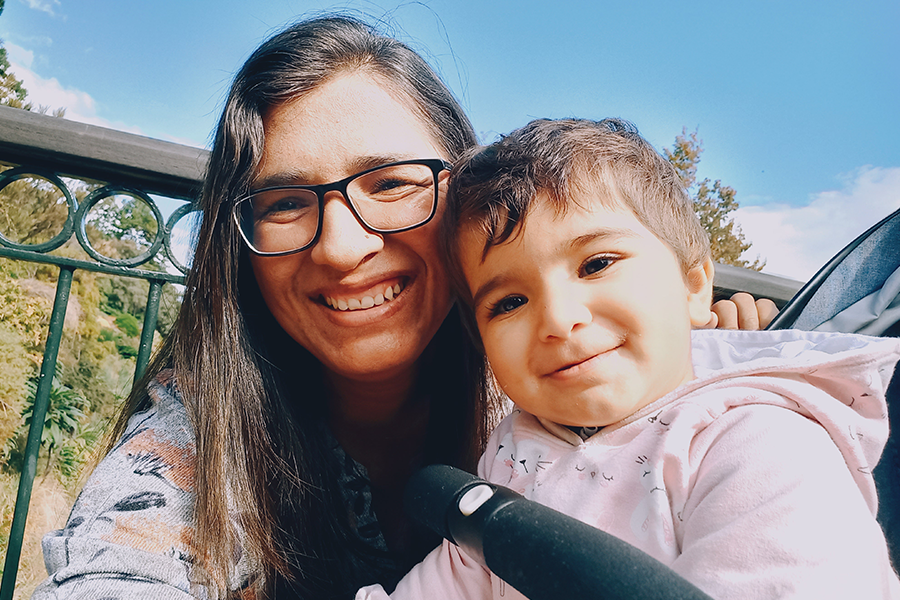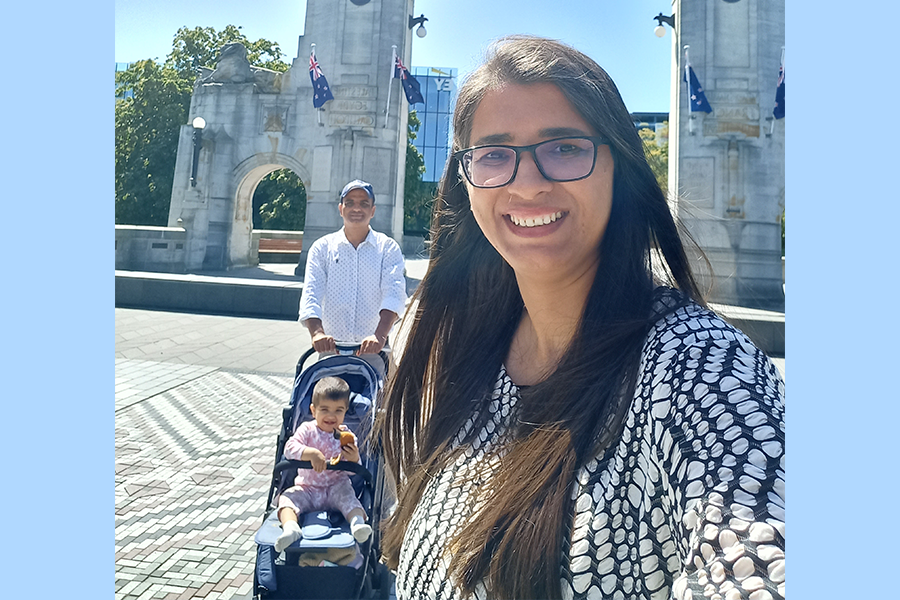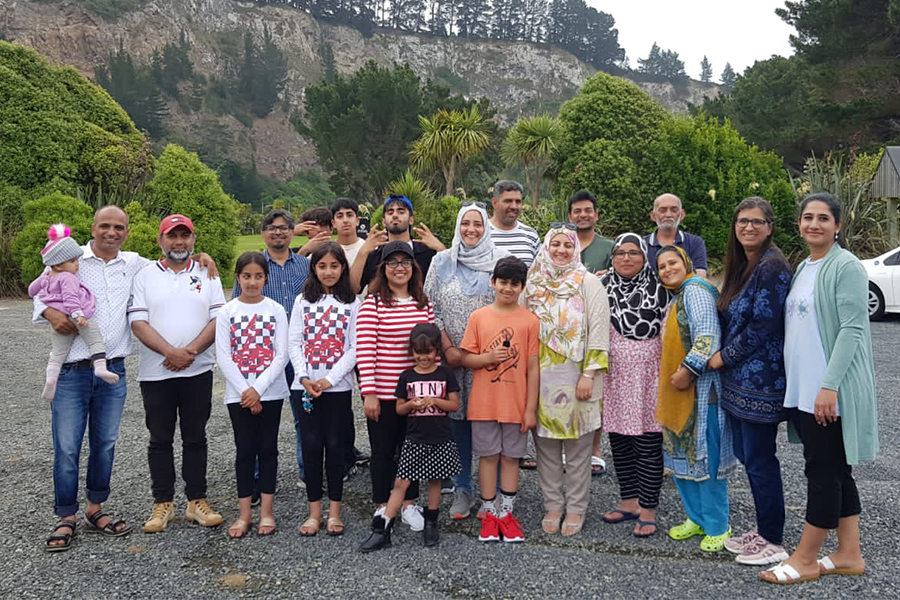
PhD candidate Shabana Talpur with her daughter.
COVID-19 disruptions, a new baby and her husband landing a job in the United Kingdom were just some hurdles Shabana Talpur faced during her PhD, but none of them stopped her from handing in her thesis. Now, she says she feels like she “can do anything”.
Since completing her master’s degree in Malaysia in 2016, Shabana had been searching for a PhD programme that catered to her field of accounting. In 2019, she finally convinced Professor Helen Roberts that her research topic was worth giving a chance.
“It was around 3am in Pakistan when I received an email from the University of Otago mentioning that my funding application has been successful, and I was being given the opportunity to pursue my PhD at this school,” Shabana says.
“It was the best moment in my life, and I could not believe in my eyes.”
She woke up her husband and they danced with excitement, shouted and celebrated the moment. It was “unforgettable”.
Like many students, Shabana began her PhD remotely in 2020 as a result of the COVID-19 border lockdown. She hopes she will have the chance to defend her thesis early next year.
“Hats off to my main supervisor, Professor Helen Roberts, and co-supervisor, Associate Professor Muhammad Nadeem who were super supportive, and used to meet me every week on Zoom, in order to guide me, right from the beginning.”

Shabana pictured with her daughter and husband.
Undertaking remote study meant she sacrificed being able to enjoy the “enriching experiences” which come with being physically present alongside her fellow university peers.
She faced obstacles such as limited access to essential research facilities, a lack of in-person collaboration, disruptions to her research work, and the heightened stress associated with navigating a steep learning curve.
Nevertheless, she fought against them, finding her way through with innovation.
During her second year of remote study in her home country, she was blessed with a baby girl and took three months off from study.
Then in September 2022, when borders opened again, Shabana and her 10-month-old baby arrived in Aotearoa New Zealand.
“It was the longest travel time I ever experienced – more than 30 hours – with the longest continuous flight of 18 hours between Dubai and Auckland, with an infant.”
Her husband had to remain in Pakistan because of his job, she says.
The dramatically cooler climate was the first thing Shabana noticed while stepping off the airplane at Ōtepoti Dunedin.
“The first challenge was weather, because it was not only cold, but windy. My baby suffered a lot and she often fell ill and could not sleep many nights.”
One time her daughter had a fever and needed to sleep on Shabana’s lap. Shabana was unable to move for many hours because when she did, her baby cried.
“It was a tough time.”
They were living in a shared house and the other residents were disturbed by her baby’s crying. The landlord then asked to her move out.
“This was another shock for me, and I was almost broken. I once felt so devastated that I thought to leave everything and go back to my country.”

Shabana enjoying a day out with other members of Ōtepoti Dunedin's Pakistani community.
Shabana says she viewed many houses via real estate agents.
“Fortunately, I found a house, which I almost lost because I was unable to reach it on time for viewing, and others were already present with the agent as second options as tenants.”
Shabana booked her baby into childcare for six hours a day, four days a week, so she could get some work done on her PhD. But it wasn’t enough.
“PhD research is so demanding that you have to spend hours continuously so can find answers to certain questions.
“I could do research only when my baby was at childcare. I could not do anything whenever my baby was with me.”
Her husband left his job in Pakistan and moved to Aotearoa after three months of living apart.
This gave Shabana time to work hard on her PhD while he cared for their baby. She had nine months left within which to finish her PhD when her husband landed a job as a lecturer at Solent University, Southampton, in the United Kingdom.
He was unable to defer the offer, and left Aotearoa for the UK.
“It was again me and my daughter and my PhD research struggles, again.”
She remained in Ōtepoti for three months before spending three months with him in the UK. She then returned for the final three months, finished writing her thesis and submitted it recently.
“Thankfully, after submitting my dissertation, my daughter and I are again able to join my husband in the UK. We are all together once again and hopefully forever now.”
In spite of all of her hurdles, Shabana says she met many polite, friendly and down-to-earth people during her time here. Before she arrived in Aotearoa, she had heard about how kind-hearted Kiwis were, and she says it’s accurate.
She was very relieved to finish and hand in her thesis, and celebrated its completion with her faculty, supervisor, colleagues and Pakistani community. She says she felt “blessed” to have such wonderful people by her side throughout her journey.
“I feel like I have done something in my life that I can be proud of. I fought with all odds that came in my way, and finally I turned them all down.
“This PhD has helped me discover my strengths. I am more confident and feel like I can do anything.”